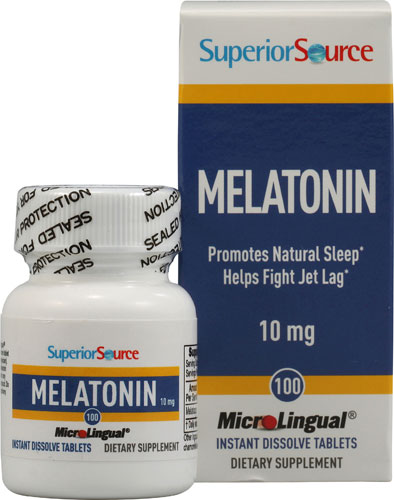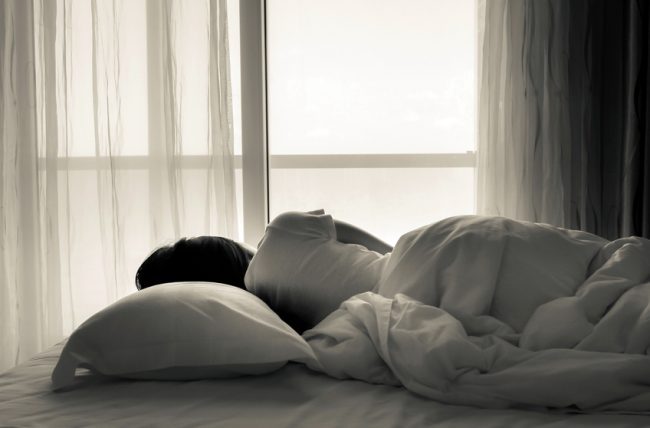From the shorter days to the crisper air, autumn ought to inspire serious restoration. But the end of summer often signifies a return to life’s fundamental commitments: School resumes, workloads increase to meet end-of-the-year demands and familial obligations intensify as we approach the holidays. What’s more, fall brings with it football season, extracurricular activities, tons of traveling, and the return of our favorite TV shows. With so much competing for our attention, it’s no wonder we’re spent before the first trick-or-treater even rings our bell.
But skimping out on sleep to watch the last ten minutes of Modern Family can take a major toll. Sleep deprivation—or even a mere inadequacy—can impact every area of our life, from our ability to manage minor mishaps to overcoming a common cold. And while you may think easier said than done when it comes to getting more sleep, trust that it takes just a few tweaks to achieve better rest.
Chief among those modifications is supporting your body’s production and levels of melatonin.
What is melatonin?
While many of us might associate melatonin with supplements found at the health food store or red-eye flights packed with business execs, melatonin is actually produced in your body—in the pineal gland, to be exact, which is located right above the middle of your brain.
During the day, this hormone remains inactive, while other hormones—such as cortisol—keep you awake and engaged. Once darkness falls, the pineal gland releases melatonin, which diminishes alertness and makes your bed all the more inviting, before lowering again to nearly imperceptible levels around 9 am. Consider it the body’s ultimate clock, an internal timer that encourages you to make the most out of daylight.
But as natural and vital as melatonin may be, our ability to produce it dwindles with age (thanks, Father Time). And since melatonin levels are impacted by light, those shorter days of fall and winter—as well as cloudier skies, time changes, and busier schedules—can disrupt our usual production, leading to oversleeping in some and insomnia in others.
Returning to optimal melatonin levels can supported with the addition of supplemental melatonin. Melatonin benefits not only include natural support for sleep, but it also promotes more refreshed sleep, encourages rest in the elderly, has antioxidant properties, and helps circadian rhythms normalize after jet lag—which is key for all that upcoming holiday travel.*
In addition to using melatonin as an herbal supplement, consider these four top tips for a more restful night’s sleep:
1. Unplug
Whether you’re engrossed in the latest episode of Game of Thrones or riveted by an article on your iPad, waiting until the last minute to shut down your electronic devices is a big no-no. Why?
The blue light you’re exposed to through your TV, computer and phone turns off melatonin production and can keep you from falling asleep with ease. Set an alarm to prompt you to unplug, remind yourself that whatever you’re doing/watching/reading will be there tomorrow, and let your brain and body start to unwind naturally.
2. Dim down
Much like the blue light that’s emitted by your electronics, bright bedside lamps and overhead lights can affect your sleep patterns.
Dim when possible, invest in a vision-friendly reading lamp, and use blackout curtains if you live near a streetlight that shines into your bedroom window.
3. Nosh yourself happy
This is not an invitation to indulge in Ben & Jerry’s with a side of Godiva chocolates—at least not all of the time. But it is a reminder that what you eat affects your mood and how well you sleep.
Consider this: Serotonin, as well as melatonin, can impact your sleep, and deficiencies in either can result in restlessness and an inability to enter rejuvenating sleep stages. And since both hormones are derived from tryptophan, eating a diet rich in this essential amino acid can support a brighter mood and a better night’s sleep. Try turkey, tofu, nuts, seeds and cheese, or opt for a bowl of oatmeal in lieu of dessert: The calcium it contains supports deeper rest.
4. Destress
Work until your head hits the desk or get engaged in a hefty discussion before bed and you’re bound to experience sleep loss.
The last hour you’re awake should be dedicated instead to prepping your brain and body for rest. A warm bath may soothe sore muscles, while slathering on a luxe lotion will prime you for squeezing between the sheets. Equally beneficial is meditating for twenty minutes before you bundle down, or stretching with your eyes closed.
The more you treat sleep as an indispensable part of your overall health, the better you’ll feel this fall—and all the days ahead.




